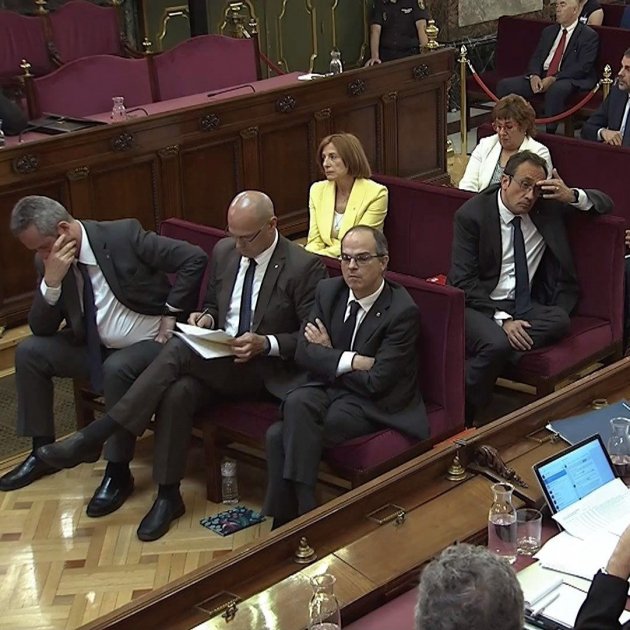So what can they do now?
The sentences in Spain's trial of 12 Catalan pro-independence civil and political leaders have been announced. As they were convicted in the Supreme Court, the court of last resort in Spain, the convictions are thus final at Spanish level. So what are the options now for the prisoners?
For months, lawyers have been working on the scenarios of possible conviction and their appeal paths. There is a clear pathway to appeal rulings by Spain's Supreme Court in Europe, but it is lengthy, and even before reaching the European courts, there are several procedures required which could stretch it out for up to two years. This process goes through the Supreme Court itself once again, as well as Spain's Constitutional Court, before reaching the European Court of Human Rights in Strasbourg.
The first step is for defence lawyers to return to the Supreme Court and present an appeal for annulment, formally requesting that the sentence is annulled. This in itself will take about two months, and then the lawyers must apply to the Spanish Constitutional Court for a writ of amparo, asserting protection under constitutional rights as a prior step to going to the European Court of Human Rights. This final Spanish court may take up to two years to rule.
It is only then that the case can be taken to European Court, in Strasbourg, which is qualified to resolve the question of whether or not the accused have had their rights violated and whether that voids the sentence. But the ruling from Europe is likely to take several more years at least.
In parallel with this European legal route, mechanisms will be activated to enable the release of the prisoners by other means. One is the political route, seeking to obtain a pardon or an amnesty. A pardon, granted by decision of the Spanish government, can revoke the sentence, either partiallly or totally, for an individual, although they are still considered guilty. An amnesty grants immunity from punishment for all those affected by a specific issue, but requires a special act to be passed by Spain's Congress of Deputies, so is considered much more improbable.
Prisoners also become eligible for an open prison regime after serving a certain proportion of their sentence, meaning they would only be required to spend nights behind bars. However, this is normally after serving three-quarters of their sentence - which in the case of the nine pro-independence leaders given jail terms, means even those with the shortest sentences might spend at least five more years in jail, in addition to the time served already as provisional prison.
None of this sounds very optimistic for the prisoners' prospects. The key is that, to some extent, these processes depend on the response that European institutions make, which could reinforce the international reaction to the sentence and speed up calls for annulment, pardons or a possible amnesty.
